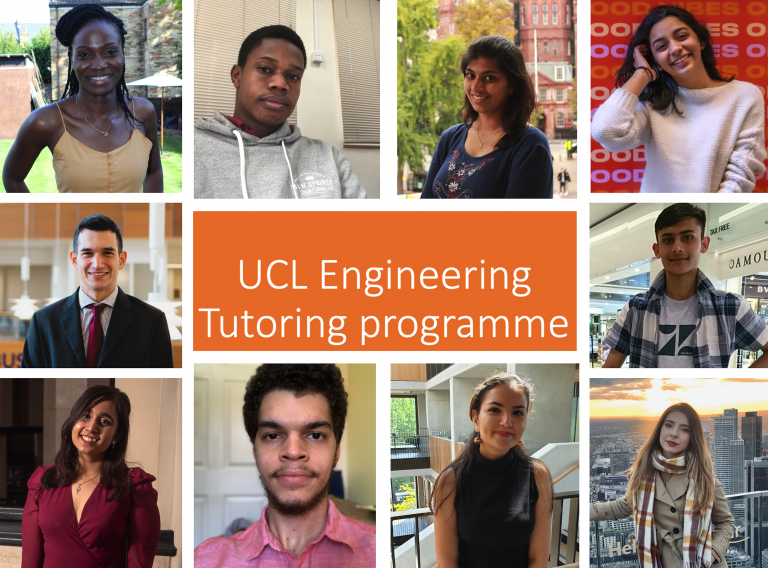How the UCL Engineering Tutoring Programme is reducing the attainment gap in east London
22 March 2021
Dr Elpida Makrygianni MBE, who leads UCL Engineering's Tutoring Programme, shares in the blog below the achievements of the programme, and how it is contributing to reducing the attainment gap in east London schools.

March 2021 marks one year since the first UK national lockdown and school closures, due to the COVID-19 pandemic. The COVID-19 crisis provided a dramatic reminder of the accelerating education attainment gap between pupils from low-income and disadvantaged backgrounds, who have been disproportionately affected by the impact of the pandemic, and their peers.
At UCL Engineering, we believe that the communities that will be successful post-COVID-19 are the ones who act now, the ones who invest in their people during the crisis. It is our priority to listen to the communities we serve and to support them in-depth, on their terms and needs, in a sustained, meaningful way. We are part of the social fabric of East London, we live and work together with the communities and young people we serve. We have seen their incredible potential and we want to help build a local talent pipeline and enable young people from East London to fulfil their true potential.
For all of the above reasons and many more, in March 2020, we teamed up with London Legacy Development Corporation (LLDC), as part of East Education, to offer an intervention tailored to the needs of secondary school pupils across East London. An online version of our UCL Engineering Tutoring programme for Year 8 to Year 13 students, offering 1-2-1 tutoring support on STEM subjects, on a weekly basis, in collaboration with East London schools and community centres.
Extensive evidence shows that tutoring can boost progress by up to 5 months, with reports from the Education Endowment Foundation and Sutton Trust stressing the importance of one-to-one and small group tutoring for pupils who have fallen behind. Tuition can be one of the most effective methods of raising education attainment, particularly amongst students from disadvantaged backgrounds. Access to high-quality tutoring, however, is often limited to those who can afford it. It is estimated that, in the UK, around 80% of disadvantaged pupils do not have access to quality tuition: only 1 in 12 Year 11s from disadvantaged backgrounds access tutoring compared to 1 in 3 from more affluent backgrounds.
Through the online UCL Engineering Tutoring programme, we have been able to provide personalised learning and tailored interventions to each young person’s ability, learning style and pace. This one-to-one support over time has increased self-confidence, boosted resilience and motivation, built up skills and STEM subject understanding of participating pupils.
From March to October 2020, we offered over 3,000 hours of one-to-one tutoring on STEM subjects, with our tutors supporting all aspects of the STEM curriculum, helping with homework, tasks, exams, tests and assignments – with a further 1,277 hours offered since November 2020. Our highly skilled and trained tutors – a cohort of undergraduate and postgraduate engineering students – have been helping young people progress in their STEM subjects and also acting as strong, relatable role models inspiring them to consider studying at a world-class university and pursuing a STEM career.
By September 2020, 78% of secondary school pupils who benefited from our online tutoring programme improved their grades by an average of 1.5 – 2 progress points amongst participating pupils. Pupils with grades below the average doubled their grades across all STEM subjects. 83% made excellent progress in maths while 72% of pupils showed a big improvement in their science scores. 79% of pupils are from BAME backgrounds, while 60% of pupils on our tutoring programme are female, and 40% are male.
We continue our work with the online tutoring programme in 2021, in order to support even more young people from East London schools and communities, to help them fulfil their true potential.
In a post-COVID-19 world, we feel that we will have even more to offer and it is our collective duty to do so, for the young people and communities that we serve.
 Close
Close

